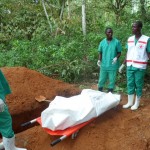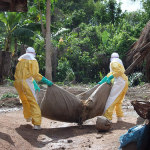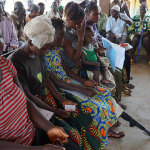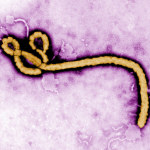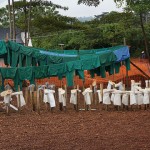In a recent interesting contribution to this platform, Paul Richards rightly questioned the mainstream perception that funerals per se are source of contamination in countries affected by ebola. The author argues that funerals are phenomena which are extremely interrelated to other different aspects of social life, like the overall care of sickness, the concept of authority, and the logic of parenthood. Yet, his brief paper has another value: by stressing the complexity of this social phenomenon, it tunes down the journalistic emphasis that in past
Continue reading →
This briefing summarises the attitudes of Monrovia community leaders and residents towards cremation, mass burials, memorialization, and remembrance ceremonies based on data collected between August – September 2014.
This working paper reports on a study to identify epidemic control priorities among 15 communities in Monrovia and Montserrado County, Liberia. Data were collected in September 2014 on the following topics: prevention, surveillance, care-giving, community-based treatment and support, networking/hotlines/calling response teams and referrals, management of corpses, quarantine and isolation, orphans, memorialization, and the need for community-based training and education. The study also reviewed issues of fear and stigma towards Ebola victims and survivors, and support for those who have been affected by Ebola. The findings
Continue reading →
Some attention has been paid to the alleged role of funerals in spreading Ebola Virus Disease in Upper West Africa. This has led to attempts to control funerals, causing both distress and active resistance. Critical examination of the role of the funeral event as a mechanism of Ebola transmission seems in order. In this paper, it is argued that funerals are inseparable from care for the sick, as far as Ebola transmission is concerned. The focal issue then becomes not control of funerals but reduction
Continue reading →
Funeral practices in Freetown are varied with differences between typical Muslim and Christian practices. Muslims typically bury the body the same day, or the day after, the death, whereas Christians might wait for up to several weeks while arrangements are made. Muslims normally bury bodies in a shroud, whereas Christians use a coffin. The bodies are typically prepared for burial (washed) by family members. This background paper gives more information on care and burial practices in Urban Sierra Leone.
While this briefing note identifies arenas of particular significance with regard to burial practices, such practices are not standardised, are likely to change as social responses to Ebola evolve, and therefore need to be discussed on a locality by locality basis. Key points are given in this policy brief, followed by a more substantial discussion of burial and cultural practices that increase risk of EVD transmission.
